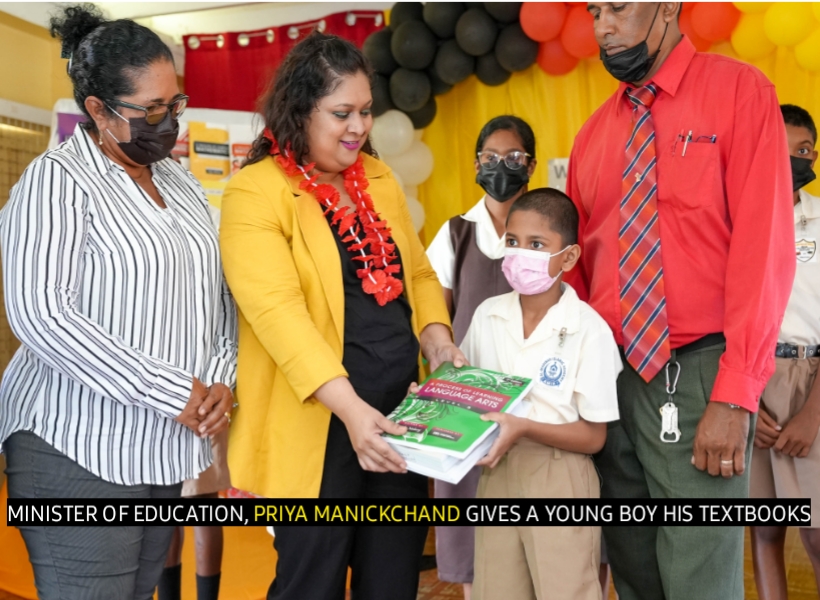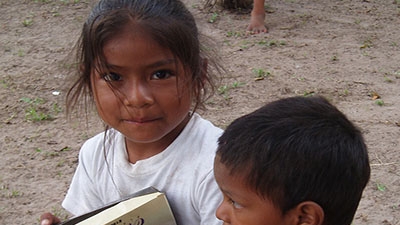Textbook distribution key to recouping COVID-triggered learning loss – Minister

As physical public school classes continue to be affected by COVID-19, investments like the distribution of free textbooks are critical to aid in the recoup of learning loss.
This point was made by Minister Priya Manickchand as she headlined her ministry’s textbook distribution exercise in the Pomeroon/Supenaam district (Region Two) yesterday.
The initiative will see each primary school pupil in the public system receiving textbooks that cover the core subject areas, Mathematics, English Language, Science and Social Studies.
Manickchand visited Sparta Primary School, Suddie Primary School and Good Hope Primary School along the Essequibo Coast to commence the exercise in the region.
While speaking to parents, she noted that it is important that the textbook support is offered not only because it was promised, but because the COVID-19 pandemic has had a heavy impact on the education sector and investments have to be made to address the learning loss.
She highlighted that this investment in the nation’s children and the education sector will reap numerous benefits in the years to come.
“We’re doing this because we believe that your children have the capacity to be anything they want to be, but we believe that they have to be supported.”
Minister Manickchand said that a child owning his or her own textbook enables them to work individually and allows teachers to deliver lessons better.
Parents were urged to ensure the resources are utilized responsibly. She explained that the reasons parents are required to sign a contract promising to ensure that the books are well-kept and returned at the end of the school year is so that other pupils can benefit also.

